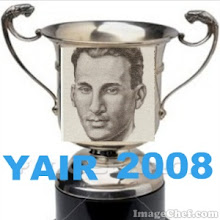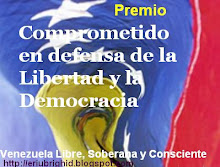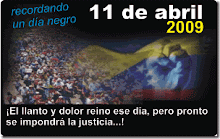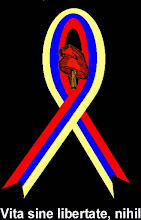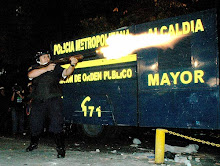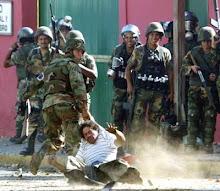


Washington.- El diario The Washington Post criticó al gobierno de Barack Obama por "ignorar deliberadamente" las acciones del presidente Hugo Chávez de "consolidar una autocracia" en Venezuela.
En un comentario editorial titulado "Cortejando al señor Chávez", el diario califica como "vergonzoso" que no haya felicitado al gobierno del presidente peruano Alan García por haber concedido asilo político a Manuel Rosales, opositor de Chávez que huyó del país luego que el presidente Chávez amenazara con encarcelarlo bajo "acusaciones dudosas" de corrupción.
Rosales, dice el diario, es uno de por lo menos siete importantes opositores de Chávez que han sido "encarcelados o sujetos a investigaciones penales o tributarias en los últimos dos meses", publicó AP.
En esas circunstancias, el diario considera "razonable preguntarse cómo está reaccionando la administración Obama a esta nueva campaña contra lo que queda de la democracia en Venezuela, especialmente después del amistoso estrechón de manos con el señor Chávez en la Cumbre de las Américas hace dos semanas" en Trinidad y Tobago. "La respuesta: No hay reacción".
"Lo que no tiene sentido es ignorar deliberadamente las acciones del señor Chávez para consolidar una autocracia. Al hacerlo, el gobierno alienta a gobiernos latinoamericanos que han evitado confrontarse con el hombre fuerte venezolano a continuar en silencio. Envía a gobiernos pro Chávez, como Bolivia y Nicaragua, el mensaje de que pueden perseguir a sus opositores con impunidad. Y hace más en vez de menos probable que Venezuela, con la ayuda de Irán y Rusia, se convierta en amenaza para Estados Unidos", expresa el diario.
Añade que "el gobierno democrático de Perú debe ser congratulado por su decisión de ofrecer asilo al señor Rosales. Es vergonzoso que la administración Obama no diga lo mismo".
El Universal
http://www.eluniversal.com/2009/04/30/int_ava_washington-post-dice_30A2311673.shtml
Courting Mr. Chávez
The Obama administration seeks to please a strongman by ignoring his crackdown on domestic opposition.
ONE OF Venezuela's most important politicians was granted asylum in Peru this week. Manuel Rosales, a former state governor who challenged Hugo Chávez in the 2006 presidential election and won election as mayor of Maracaibo last fall, fled the country to avoid imprisonment. He was being prosecuted on dubious corruption charges; the investigation began only after Mr. Chávez shouted on television that "I'm going to put you in jail, Rosales!" Mr. Rosales is one of at least seven major Chávez opponents, including three of the five opposition state governors, who have been imprisoned or subjected to criminal or tax investigations during the past two months.
It is reasonable to ask how the Obama administration is reacting to this major new campaign against what remains of Venezuela's democracy, especially given the president's friendly handshake with Mr. Chávez at the Summit of the Americas two weeks ago. The answer: It isn't. The administration has maintained a deliberate silence about the persecution of the elected politicians, a dissident former defense minister and a leading journalist. Meanwhile, the State Department is lauding what it calls the "positive development" in U.S.-Venezuelan relations: Mr. Chávez's offer to exchange ambassadors. "We buy a lot of their oil," Secretary of State Hillary Rodham Clinton told the House Foreign Affairs Committee last week. "Let's see if we can begin to turn that relationship."
Ms. Clinton seems to believe that Mr. Chávez's escalating domestic repression shouldn't be an impediment to better relations with the United States -- an attitude in keeping with her already-stated views about such nations as China, Egypt and Turkey. She pointed out in her congressional testimony that Venezuela has been developing close relations with Iran, and that "it's a serious matter if any country in our hemisphere falls under the sway of Iran or someone else who is inimicable to our interests."
"Let's try to see whether there is any opportunity to move President Chávez away from the influences" of Iran and others, she proposed.
That's certainly a worthy goal -- and we have no objection to Mr. Obama's handshake with Mr. Chávez. The administration's strategy -- to open up a constructive dialogue with Venezuela and avoid being cast as Mr. Chávez's Yanqui foil -- is reasonable; it is also the same strategy as was tried, unsuccessfully, by the previous two administrations. What doesn't make sense is to deliberately ignore steps by Mr. Chávez to consolidate an autocracy. In so doing, the administration encourages Latin American governments that have shrunk from confronting the Venezuelan strongman to continue in their own silence. It sends pro-Chávez governments in countries such as Bolivia and Nicaragua the message that they can persecute their own domestic opponents with impunity. And it makes it more rather than less likely that Venezuela, with the help of Iran and Russia, will become a threat to the United States.
Peru's democratic government is to be congratulated for its decision to offer Mr. Rosales asylum. It is shameful that the Obama administration won't say so.
The Washington Post
http://www.washingtonpost.com/wp-dyn/content/article/2009/04/29/AR2009042904419.html































































